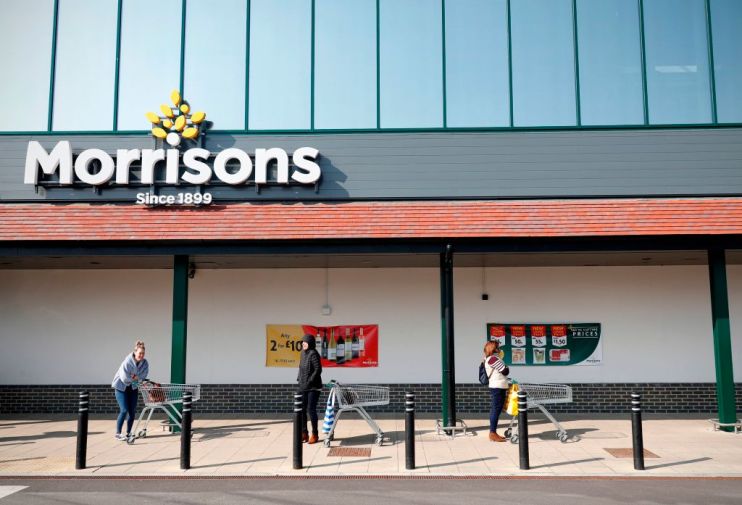Brits spent an extra £1.9bn in stockpiling spree before coronavirus lockdown

Brits made over 79 million extra trips to supermarkets in the four weeks leading up to the coronavirus lockdown, as people rushed to stock up on groceries ahead of restrictions being introduced, according to industry data.
The stockpiling drove a 20.5 per cent jump in supermarket sales up to 21 March, with customers spending an additional £1.9bn on groceries, data from Neilsen showed.
In the week to 21 March, two days before Prime Minister Boris Johnson announced the nationwide lockdown to try and limit the spread of coronavirus, supermarket sales rose 43 per cent compared to the same period last year.
Nielsen found that in the four-week period shoppers typically added just one extra item to their basket during each trip, with the average basket increasing from 10 items to 11, and average basket spend rising from £15 to £16.
“With households making almost three extra shopping trips in the last four weeks, this small change in individual shopping behaviour has led to a seismic shift in overall shopping patterns,” said Mike Watkins, Nielsen’s UK head of retailer and business insight.
Nielsen data showed that in the last week of February and the first two weeks of March, shoppers focused on stockpiling essentials, such as medicines, cleaning supplies, and ambient groceries, such as pasta and rice.
However by the week ending 21 March, many shoppers had filled their cupboards with the so-called “pandemic pantry” necessities, so they turned to their freezers, with sales of frozen food rising 84 per cent year-on-year.
Separately, data published by Kantar showed that stockpiling helped make March the biggest month on record for grocery sales, with the average household spending an extra £62.92 in the past four weeks.
Shoppers in London, where the coronavirus outbreak is ahead of other regions, increased their spending the most, with a 26 per cent increase during the month.
“Retailers and their staff have been on the frontline as households prepare for an extended stay at home, with grocery sales amounting to £10.8bn during the past four weeks alone – that’s even higher than levels seen at Christmas, the busiest time of year under normal circumstances,” said Fraser McKevitt, Kantar’s head of retail and consumer insight.
With pubs and restaurants closed due to the lockdown, shoppers stocked up on alcohol for virtual pub trips with friends on apps like Zoom and Houseparty, boosting booze sales by 22 per cent.
Convenience stores also benefited from people shopping more frequently and following government guidance to stay closer to home.
Smaller branches of the major retailers and independently-owned shops increased their share of spend to 13.3 per cent in March, growing sales by 30 per cent year-on-year.
“We expect restrictions on movement and relatively full grocery cupboards will mean the incredibly high levels of shopping trips made in March will drop off over the coming weeks,” said McKevitt.
He added that regular trips to smaller shops were “likely to continue, as people avoid travelling and queues at stores with one-in-one-out policies in place”, and predicted that sales of non-perishable goods would slow as households shift to focusing on replenishing supplies of fresh food.
“While much-reported panic buying has been concentrated to a relatively low number of individuals so far, we anticipate that this too will subside as consumers gain confidence in the retailers’ abilities to maintain grocery supplies and keep stock on the shelves,” he said.